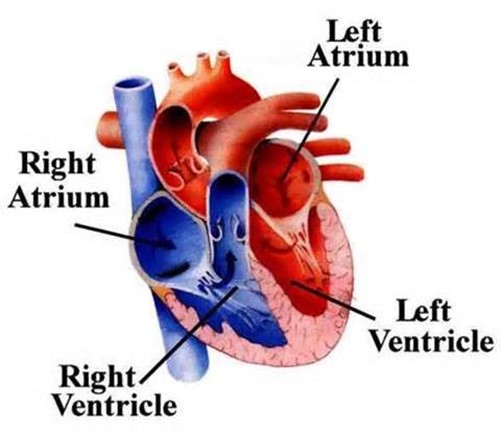High attitudes may produce hypoxemia through
Shunting
Hyperventilation
Decreased inspired oxygen
D. Diffusion abnormalities
The Correct Answer is C
At high altitudes, the air pressure is decreased, and there is less oxygen available in each breath. This leads to a decreased partial pressure of oxygen in the lungs, which can cause hypoxemia (low oxygen levels in the blood). Hyperventilation may initially help to increase oxygen delivery to the body, but it can also lead to respiratory alkalosis and decrease oxygen delivery to the tissues in the long run.
Nursing Test Bank
Naxlex Comprehensive Predictor Exams
Related Questions
Correct Answer is C
Explanation

The left ventricle is responsible for pumping oxygenated blood out of the heart and into systemic circulation, which requires generating enough pressure to overcome the resistance of the systemic blood vessels. Therefore, the left ventricle has thicker and more muscular walls than the right ventricle and can generate higher pressures during contraction. In contrast, the right ventricle pumps deoxygenated blood to the lungs, which have lower resistance compared to the systemic circulation, and therefore do not need to generate as high pressures.
Correct Answer is C
Explanation
Modifiable risk factors for coronary artery disease (CAD) are those that can be changed or controlled to reduce the risk of developing CAD. These include high blood pressure, high cholesterol levels, smoking, physical inactivity, unhealthy diet, and obesity. High HDL (high-density lipoprotein) is actually a desirable factor, as it is known as the "good cholesterol" and helps to remove excess cholesterol from the body. Orthostatic hypotension, or a drop in blood pressure upon standing, is not considered a modifiable risk factor for CAD.
Whether you are a student looking to ace your exams or a practicing nurse seeking to enhance your expertise , our nursing education contents will empower you with the confidence and competence to make a difference in the lives of patients and become a respected leader in the healthcare field.
Visit Naxlex, invest in your future and unlock endless possibilities with our unparalleled nursing education contents today
Report Wrong Answer on the Current Question
Do you disagree with the answer? If yes, what is your expected answer? Explain.
Kindly be descriptive with the issue you are facing.
